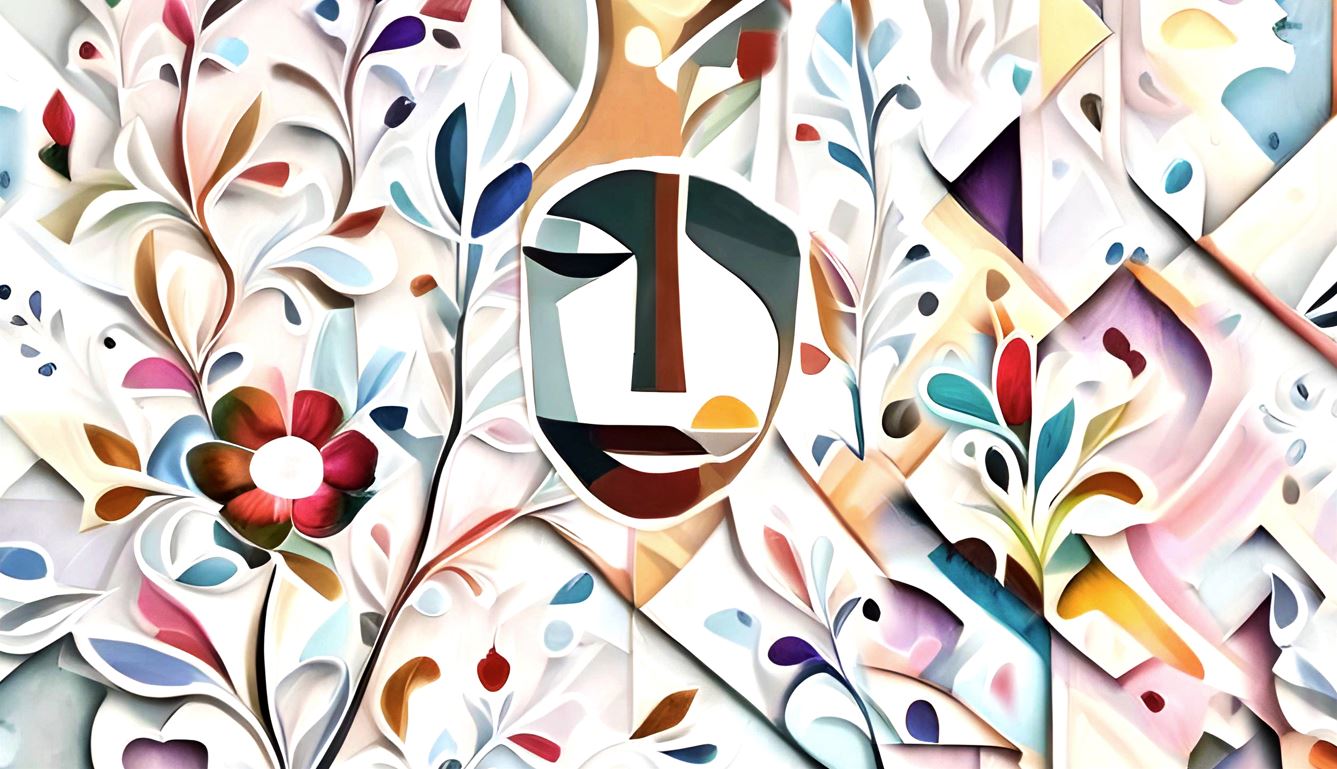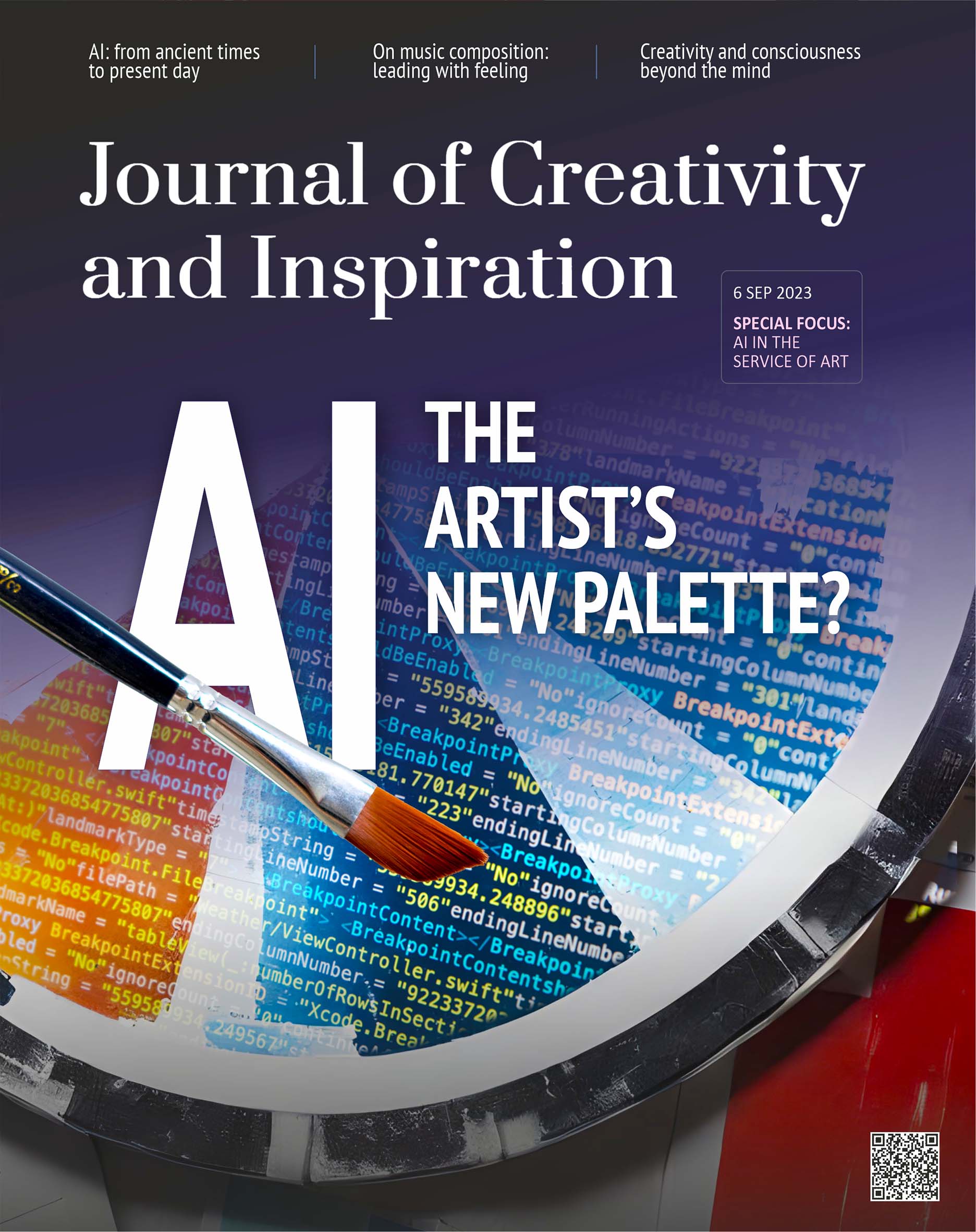Creativity and consciousness beyond the mind
6 September 2023 – Vol 1, Issue 1.

‘Tapestry of Consciousness’, by Nicole and Gil Dekel and AI (pen on tissue paper, AI and Photoshop), 2023.
The hypothesis in neurological science is that consciousness and the brain are the same. However, there is no direct evidence that the brain makes consciousness. No one has ever observed a brain producing consciousness. I believe that there is another way of looking at consciousness; a perspective that allows us to consider consciousness as energy that transcends the brain.
Careful experiments have shown that consciousnesses can do things that the brain cannot. For example, consciousness can insert information into the world at a distance beyond the reach of what a brain can do, as can be observed in remote healing. Consciousness can also acquire information from the world at a distance in ways that brains cannot. An example is precognition, the knowing of events before they happen. Another example is remote viewing wherein people can detail pictures of what a distant individual is viewing on the other side of the earth. These studies have been replicated in laboratories around the world, demonstrating beyond a reasonable doubt that the brain and consciousness are simply not one and the same.
So, is the brain related to consciousness at all?
William James, the father of American Psychology, explained that consciousness works through the brain but is not produced by it. The brain acts like a projector through which consciousness works. It might appear that consciousness is made by the brain, in the same way it may appear that your laptop creates the film you are watching. The laptop did not produce the film. The film was made, and comes from somewhere else. It is manifested on the laptop’s monitor, but not originated in the laptop. In the same way, consciousness may be distributed in the world, working through the brain just as streaming services work through your laptop. The brain operates as a conduit for consciousness.
In my book ‘Recovering the Soul’ (1989) I introduced the concept of ‘non-local mind’. Non-local mind means not localized. If something is not local you cannot put it in a box or in a specific place. Consciousness cannot be confined to brains, bodies or even space. It cannot even be confined to the present moment in time, since it is not localised. Rather, it is everywhere; it is omnipresent, distributed in space and also in time.
Carl Jung was suggesting a more extensive role for the mind. He believed that mental-emotional events can escape an individual’s body and operate outside it. In this respect, we can tap into sources of wisdom beyond ourselves and beyond the present moment. Creative breakthroughs become ordinary in the context of nonlocal mind. Empathy and compassion also evolve as a result of feeling linked with one another. Empathy allows us to sense each other, which is a valuable skill to have if you are an artist creating works that relate to human nature.
How to achieve this heightened awareness?
This will not happen automatically. We first have to start by setting biases and prejudices aside, and the sooner the better. As Andre Malraux said, “The twenty-first century will be spiritual or it will not be at all.”
The second step is to be open to the prospect that consciousness is a field of energy that extends beyond the physical realm. And the next step is to practice mindfulness such as meditation and visualisation.
Larry Dossey, MD, is the author of thirteen books and numerous articles. An advocate of the role of the mind in health and the role of spirituality in healthcare, he brings the experience of a practising internist and the soul of a poet to the discourse, offering panoramic insight into the nature and the future of medicine. Dr Dossey is the former Executive Editor of both the peer-reviewed journals ‘Alternative Therapies in Health’ and ‘Medicine and Explore: The Journal of Science and Healing’.

I tried to share this insight during my art degree within my work, to be told I was short circuiting the process and not developing ideas and creativity. I was also a succeeding artist with exhibitions in 4 Internationally recognised art museums across the world when I graduated, showing the exact work that I couldn’t be awarded a 1st! I hadn’t ‘played by the rules’ set by the constructs of the institutional mind of the University…. Yet I could reference many highly successful artists who’s work caused the mind to stand still and appear as meditation. This idea is finally leaking into Art, when historically it was an expressed as art. Art and spirituality are the same process, otherwise they are constructed by the mind and therefore designed.